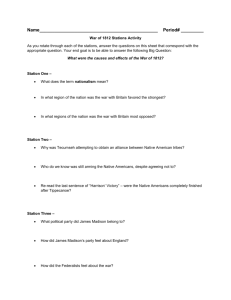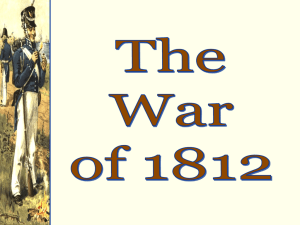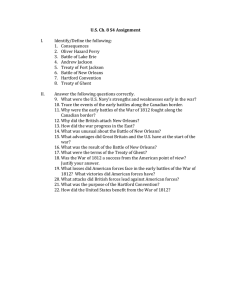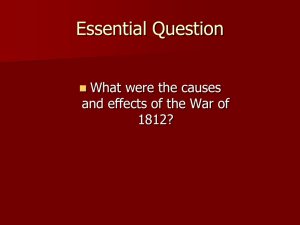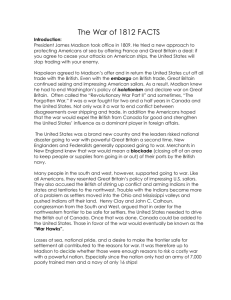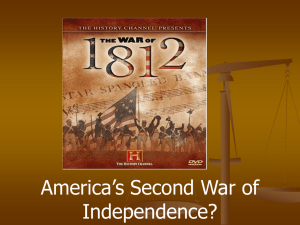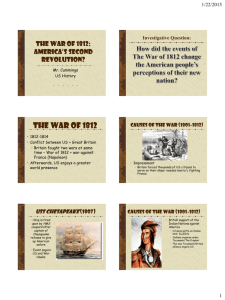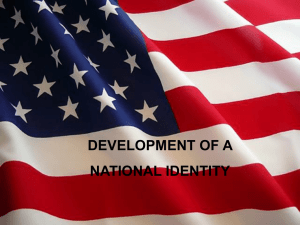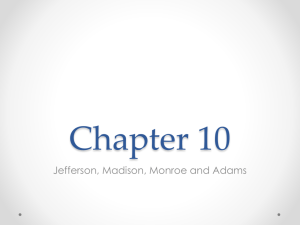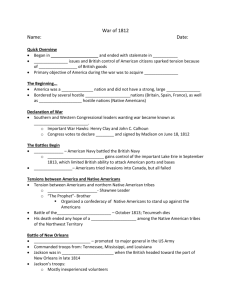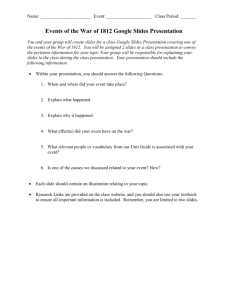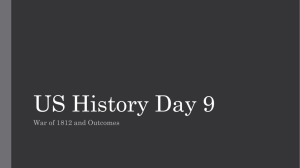War of 1812
advertisement
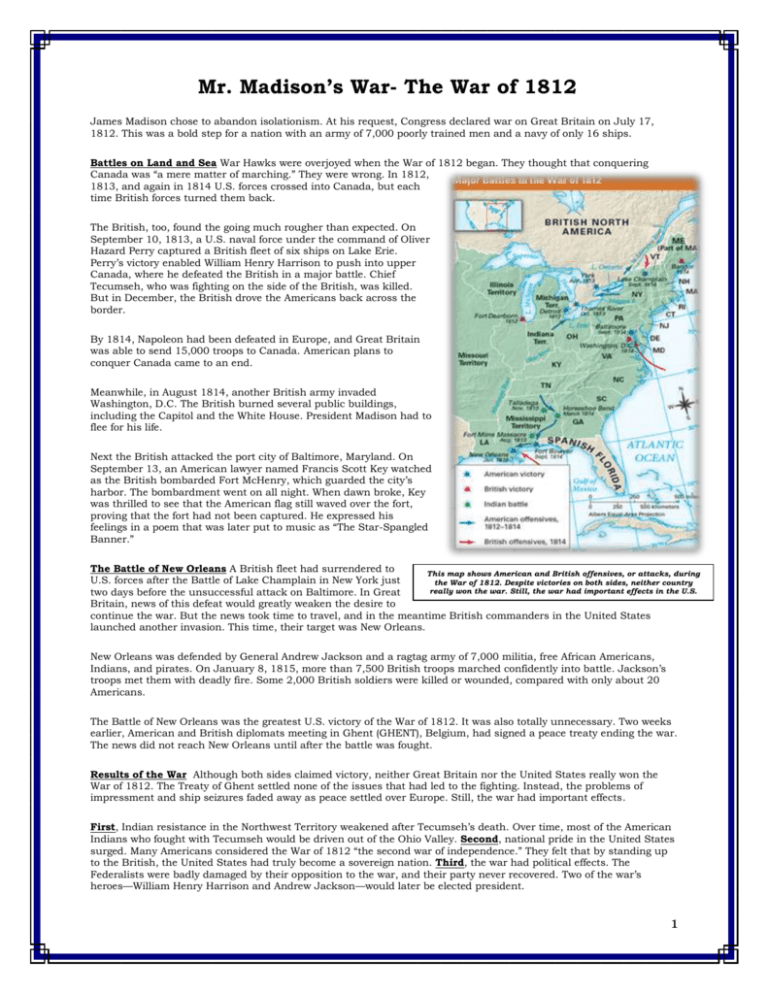
Mr. Madison’s War- The War of 1812 James Madison chose to abandon isolationism. At his request, Congress declared war on Great Britain on July 17, 1812. This was a bold step for a nation with an army of 7,000 poorly trained men and a navy of only 16 ships. Battles on Land and Sea War Hawks were overjoyed when the War of 1812 began. They thought that conquering Canada was “a mere matter of marching.” They were wrong. In 1812, 1813, and again in 1814 U.S. forces crossed into Canada, but each time British forces turned them back. The British, too, found the going much rougher than expected. On September 10, 1813, a U.S. naval force under the command of Oliver Hazard Perry captured a British fleet of six ships on Lake Erie. Perry’s victory enabled William Henry Harrison to push into upper Canada, where he defeated the British in a major battle. Chief Tecumseh, who was fighting on the side of the British, was killed. But in December, the British drove the Americans back across the border. By 1814, Napoleon had been defeated in Europe, and Great Britain was able to send 15,000 troops to Canada. American plans to conquer Canada came to an end. Meanwhile, in August 1814, another British army invaded Washington, D.C. The British burned several public buildings, including the Capitol and the White House. President Madison had to flee for his life. Next the British attacked the port city of Baltimore, Maryland. On September 13, an American lawyer named Francis Scott Key watched as the British bombarded Fort McHenry, which guarded the city’s harbor. The bombardment went on all night. When dawn broke, Key was thrilled to see that the American flag still waved over the fort, proving that the fort had not been captured. He expressed his feelings in a poem that was later put to music as “The Star-Spangled Banner.” The Battle of New Orleans A British fleet had surrendered to This map shows American and British offensives, or attacks, during U.S. forces after the Battle of Lake Champlain in New York just the War of 1812. Despite victories on both sides, neither country really won the war. Still, the war had important effects in the U.S. two days before the unsuccessful attack on Baltimore. In Great Britain, news of this defeat would greatly weaken the desire to continue the war. But the news took time to travel, and in the meantime British commanders in the United States launched another invasion. This time, their target was New Orleans. New Orleans was defended by General Andrew Jackson and a ragtag army of 7,000 militia, free African Americans, Indians, and pirates. On January 8, 1815, more than 7,500 British troops marched confidently into battle. Jackson’s troops met them with deadly fire. Some 2,000 British soldiers were killed or wounded, compared with only about 20 Americans. The Battle of New Orleans was the greatest U.S. victory of the War of 1812. It was also totally unnecessary. Two weeks earlier, American and British diplomats meeting in Ghent (GHENT), Belgium, had signed a peace treaty ending the war. The news did not reach New Orleans until after the battle was fought. Results of the War Although both sides claimed victory, neither Great Britain nor the United States really won the War of 1812. The Treaty of Ghent settled none of the issues that had led to the fighting. Instead, the problems of impressment and ship seizures faded away as peace settled over Europe. Still, the war had important effects. First, Indian resistance in the Northwest Territory weakened after Tecumseh’s death. Over time, most of the American Indians who fought with Tecumseh would be driven out of the Ohio Valley. Second, national pride in the United States surged. Many Americans considered the War of 1812 “the second war of independence.” They felt that by standing up to the British, the United States had truly become a sovereign nation. Third, the war had political effects. The Federalists were badly damaged by their opposition to the war, and their party never recovered. Two of the war’s heroes—William Henry Harrison and Andrew Jackson—would later be elected president. 1
